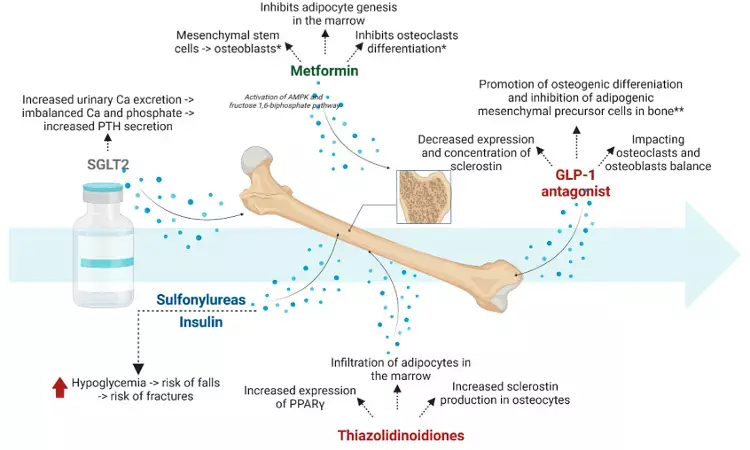- Home
- Medical news & Guidelines
- Anesthesiology
- Cardiology and CTVS
- Critical Care
- Dentistry
- Dermatology
- Diabetes and Endocrinology
- ENT
- Gastroenterology
- Medicine
- Nephrology
- Neurology
- Obstretics-Gynaecology
- Oncology
- Ophthalmology
- Orthopaedics
- Pediatrics-Neonatology
- Psychiatry
- Pulmonology
- Radiology
- Surgery
- Urology
- Laboratory Medicine
- Diet
- Nursing
- Paramedical
- Physiotherapy
- Health news
- Fact Check
- Bone Health Fact Check
- Brain Health Fact Check
- Cancer Related Fact Check
- Child Care Fact Check
- Dental and oral health fact check
- Diabetes and metabolic health fact check
- Diet and Nutrition Fact Check
- Eye and ENT Care Fact Check
- Fitness fact check
- Gut health fact check
- Heart health fact check
- Kidney health fact check
- Medical education fact check
- Men's health fact check
- Respiratory fact check
- Skin and hair care fact check
- Vaccine and Immunization fact check
- Women's health fact check
- AYUSH
- State News
- Andaman and Nicobar Islands
- Andhra Pradesh
- Arunachal Pradesh
- Assam
- Bihar
- Chandigarh
- Chattisgarh
- Dadra and Nagar Haveli
- Daman and Diu
- Delhi
- Goa
- Gujarat
- Haryana
- Himachal Pradesh
- Jammu & Kashmir
- Jharkhand
- Karnataka
- Kerala
- Ladakh
- Lakshadweep
- Madhya Pradesh
- Maharashtra
- Manipur
- Meghalaya
- Mizoram
- Nagaland
- Odisha
- Puducherry
- Punjab
- Rajasthan
- Sikkim
- Tamil Nadu
- Telangana
- Tripura
- Uttar Pradesh
- Uttrakhand
- West Bengal
- Medical Education
- Industry
Treatment of osteoporosis with Denosumab associated with lower risk of incident diabetes especially among elderly: JAMA

Denosumab treatment is associated with a lower risk of incident diabetes especially among elderly patients with osteoporosis, suggests a new study published in the JAMA Network Open.
Denosumab, a humanized monoclonal antibody against receptor activator of nuclear factor κB ligand (RANKL), is a widely used antiresorptive medication for osteoporosis treatment. Recent preclinical studies indicate that inhibition of RANKL signaling improves insulin sensitivity, glucose tolerance, and β-cell proliferation, suggesting that denosumab may improve glucose homeostasis; however, whether denosumab reduces the risk of incident diabetes remains unclear. A study was done to evaluate whether denosumab use is associated with a lower risk of developing diabetes in patients with osteoporosis. This nationwide, propensity score–matched cohort study used administrative data from Taiwan’s National Health Insurance Research Database. Adult patients who received denosumab for osteoporosis therapy in Taiwan between 2012 and 2019 were included. To eliminate the inherent bias from confounding by indication, the patients were categorized into a treatment group (34 255 patients who initiated denosumab treatment and adhered to it) and a comparison group (34 255 patients who initiated denosumab treatment but discontinued it after the initial dose) according to the administration status of the second dose of denosumab. Propensity score matching was performed to balance patient characteristics and to control for confounders.
The primary outcome was incident diabetes requiring treatment with antidiabetic drugs. A Cox proportional hazards model was used to estimate the hazard ratio (HR) for incident diabetes. Data were analyzed from January 1 to November 30, 2023. Results: After propensity score matching, 68 510 patients were included (mean [SD] age, 77.7 [9.8] years; 57 762 [84.3%] female). During a mean (SD) follow-up of 1.9 (1.6) years, 2016 patients developed diabetes in the treatment group and 3220 developed diabetes in the comparison group (incidence rate, 35.9 vs 43.6 per 1000 person-years). Compared with the comparison group, denosumab treatment was associated with a lower risk of incident diabetes (HR, 0.84; 95% CI, 0.78-0.90). Several sensitivity analyses also demonstrated similar results of lower diabetes risk associated with denosumab treatment. The results from this cohort study indicating that denosumab treatment was associated with lower risk of incident diabetes may help physicians choose an appropriate antiosteoporosis medication for patients with osteoporosis while also considering the risk of diabetes.
Reference:
Huang H, Chuang AT, Liao T, et al. Denosumab and the Risk of Diabetes in Patients Treated for Osteoporosis. JAMA Netw Open. 2024;7(2):e2354734. doi:10.1001/jamanetworkopen.2023.54734
Dr. Shravani Dali has completed her BDS from Pravara institute of medical sciences, loni. Following which she extensively worked in the healthcare sector for 2+ years. She has been actively involved in writing blogs in field of health and wellness. Currently she is pursuing her Masters of public health-health administration from Tata institute of social sciences. She can be contacted at editorial@medicaldialogues.in.
Dr Kamal Kant Kohli-MBBS, DTCD- a chest specialist with more than 30 years of practice and a flair for writing clinical articles, Dr Kamal Kant Kohli joined Medical Dialogues as a Chief Editor of Medical News. Besides writing articles, as an editor, he proofreads and verifies all the medical content published on Medical Dialogues including those coming from journals, studies,medical conferences,guidelines etc. Email: drkohli@medicaldialogues.in. Contact no. 011-43720751


